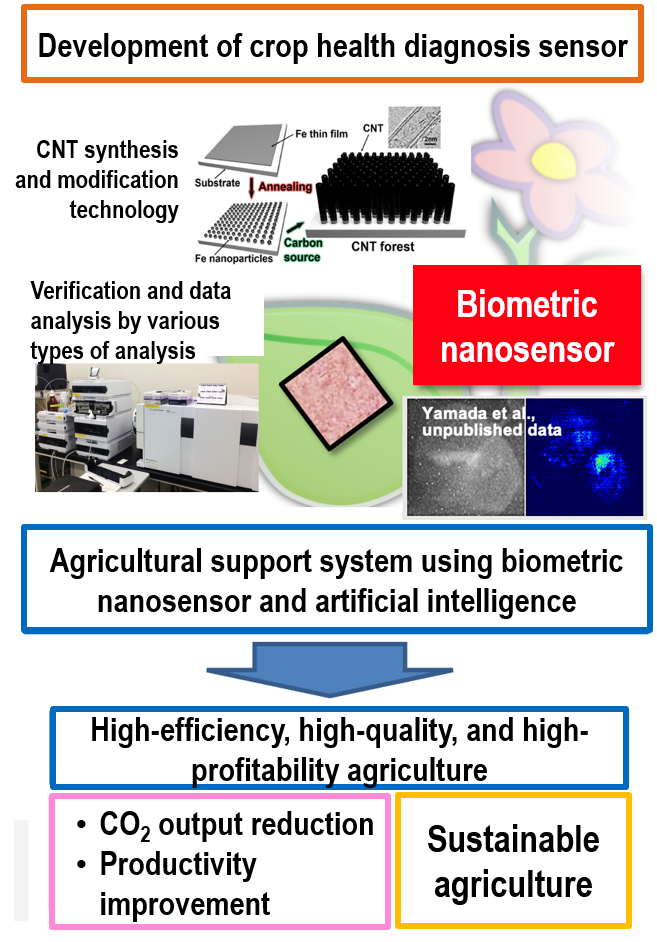Example
Reduction of CO2 output from agricultural work through crop health diagnosis
Social background:
Agriculture is an important industry in terms of food supply; however, people tend to be under the impression that farming is inefficient, experience-dependent and hard work, and the aging and decreasing number of workers have become problems. Furthermore, CO2 emissions from agriculture account for as much as 10% of the total, and reduction is urgently needed.
Purposes of the activities:
Agriculture can be summarized as the task of accurately assessing the health and growth status of crops and managing them accordingly to maximize crop quality and production. A biometric sensor will make it possible to accurately grasp the status of the crop at any time to ensure optimal crop management, eventually improving productivity, increasing profits and reducing CO2 output through lean work and fertilization.
Overview of activities:
Using advanced materials, including a carbon nanosensor, we are conducting research and development of a biological nanosensor that can quantify plant hormones, which are indicators of the physiological state of plants.
Expected effects:
With the spread of smart agriculture, the environment for collecting field environmental data and crop shipment data is being prepared. By adding biometric sensor measurement devices to integrate and analyze all the data with artificial intelligence, a system that proposes highly efficient agricultural work can be built.

Representative
